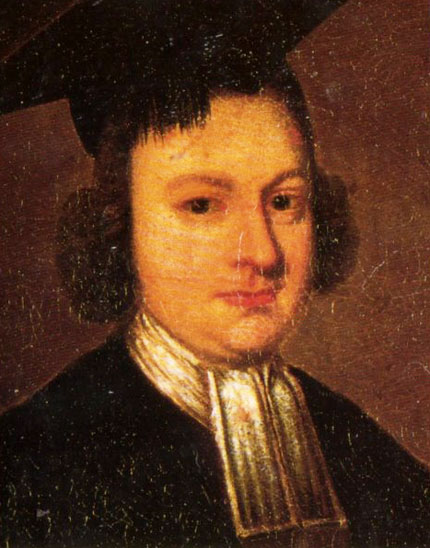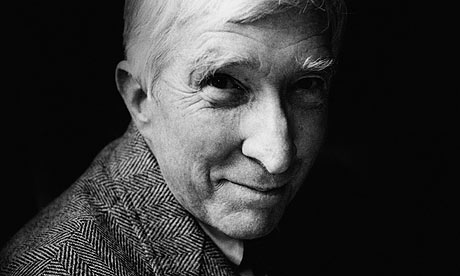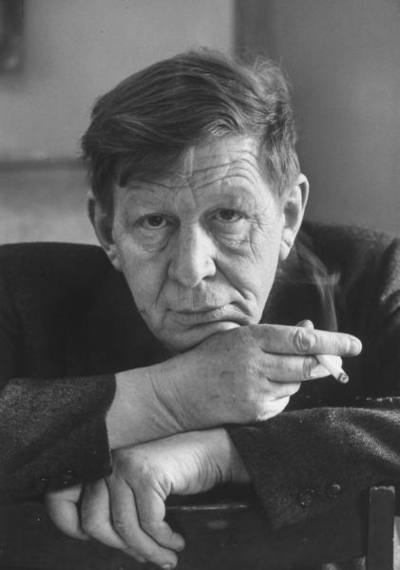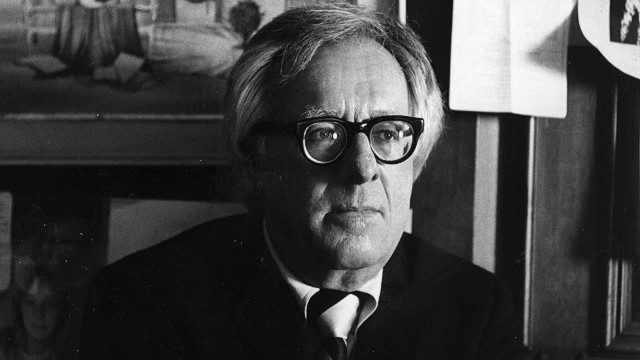 Saturday Song
Saturday Song Entries in Saturday Song (8)
Saturday Song: Marianne Moore
 Saturday, October 11, 2014 at 06:01AM
Saturday, October 11, 2014 at 06:01AM  Marianne Moore is one of the many 20th century poets who combined their faith and art. She excelled at both: winning a Pulitzer Prize for her Collected Poems, and winning the admiration of T.S. Eliot: “Miss Moore is, I believe, one of those few who have done the language some service in my lifetime.”
Marianne Moore is one of the many 20th century poets who combined their faith and art. She excelled at both: winning a Pulitzer Prize for her Collected Poems, and winning the admiration of T.S. Eliot: “Miss Moore is, I believe, one of those few who have done the language some service in my lifetime.”
Midwestern-born, Bryn Mawr educated, she was known for irony, wit, and deep conviction. She played the role of East-coast literati well, dressing in a flambouyant cape and tricorn hat. She was featured in Life, the New York Times, and the New Yorker. She was the anti-Emily Dickinson.
The Ford Motor Company even hired her to suggest names for their cars, though they did not adopt her suggestions. That’s a shame. Instead, they went with The Edsel.
That Harp You Play So Well
Oh David, if I had
Your power, I should be glad—
In harping, with the sling,
In patient reasoning!
Blake, Homer, Job, and you,
Have made old wineskins new.
Your energies have wrought
Stout continents of thought.
But, David, if the heart
Be brass, what boots the art
Of exorcising wrong,
Of harping to a song?
The scepter and the ring
And every royal thing
Will fail. Grief’s lustiness
Must cure that harp’s distress.
Saturday Song: Christopher Smart
 Saturday, October 4, 2014 at 03:52PM
Saturday, October 4, 2014 at 03:52PM  Oppressive societies throw godly people in prison. Civilized societies have them committed to mental institutions. Christopher Smart was confined for insanity at London’s St. Luke’s hospital for a “disconcerting impulse for public prayer,” also known as “religious monomania.” True, the events of his life happened 300 years ago, but how different are our modern judgments?
Oppressive societies throw godly people in prison. Civilized societies have them committed to mental institutions. Christopher Smart was confined for insanity at London’s St. Luke’s hospital for a “disconcerting impulse for public prayer,” also known as “religious monomania.” True, the events of his life happened 300 years ago, but how different are our modern judgments?
While polite society thought Smart was preoccupied with God, his fellow poets saw the width and breath of his genius. 18th century giants such as Dr. Samuel Johnson and Robert Browning admired him, and 20th century poet said Smart is "the purest case of man's vision prevailing over the spirit of his times." The civilized poets of the British Empire gave lip service to the church; Smart filled his lungs with the passion, wonder, and praise of God. He could not contain his poetic expression to the couplets and meter of cultivated taste. While the literary world was structured, ordered and followed the rules of good poetry, Smart prefigured modern verse by generations.
Christopher Smart saw the goodness of God everywhere. We should all be so crazy.
An excerpt from Jubilate Agno (“Rejoice in the Lamb”)
For I will consider my Cat Jeoffry.
For he is the servant of the Living God, duly and daily serving him.
For at the first glance of the glory of God in the East he worships in his way.
For is this done by wreathing his body seven times round with elegant quickness.
For then he leaps up to catch the musk, which is the blessing of God upon his prayer.
For he rolls upon prank to work it in.
For having done duty and received blessing he begins to consider himself.
For this he performs in ten degrees.
For first he looks upon his forepaws to see if they are clean.
For secondly he kicks up behind to clear away there.
For thirdly he works it upon stretch with the forepaws extended.
For fourthly he sharpens his paws by wood.
For fifthly he washes himself.
For sixthly he rolls upon wash.
For seventhly he fleas himself, that he may not be interrupted upon the beat.
For eighthly he rubs himself against a post.
For ninthly he looks up for his instructions.
For tenthly he goes in quest of food.
For having considered God and himself he will consider his neighbor.
For if he meets another cat he will kiss her in kindness.
For when he takes his prey he plays with it to give it a chance.
For one mouse in seven escapes by his dallying.
For when his day's work is done his business more properly begins.
For he keeps the Lord's watch in the night against the adversary.
For he counteracts the powers of darkness by his electrical skin and glaring eyes.
For he counteracts the Devil, who is death, by brisking about the life.
For in his morning orisons he loves the sun and the sun loves him.
Saturday Song: John Updike
 Saturday, September 27, 2014 at 10:24AM
Saturday, September 27, 2014 at 10:24AM  In some ways John Updike is the embodiment of C.S. Lewis’ vision for a Christian artist. Lewis held that the idea of Christian Literature made no more sense than Christian Engineering. This is from Lewis' excellent essay, Christianity and Literature:
In some ways John Updike is the embodiment of C.S. Lewis’ vision for a Christian artist. Lewis held that the idea of Christian Literature made no more sense than Christian Engineering. This is from Lewis' excellent essay, Christianity and Literature:
The rules for writing a good passion play or a good devotional lyric are simply the rules for writing tragedy or lyric in general: success in sacred literature depends on the same qualities of structure, suspense, variety, diction, and the like which secures success in secular literature.
Updike may well be the best American novelist of the 20th century. He was a believer. But you will search in vain for his work at any Christian Bookstore—which is why I rarely visit them. His work deals with the most-human themes (ambition, pride, sexual desire, alienation, and disillusionment) in ways considered unmarketable by Christian Publishers.
Updike also wrote poetry. I don’t know if his poems ever appeared in Guideposts, but he did manage to gain the attention of The New Yorker and other pagan publications. The result is a writer virtually unknown among Evangelicals, but revered among the lost. In this instance, please number me among the lost.
Earthworm
We pattern our Heaven
On bright butterflies,
But it must be that even
In earth heaven lies.
The worm we uproot
In turning a spade
Returns, careful brute,
To the peace he has made.
God blesses him; he
He gives praise with his toil,
Lends comfort to me,
And aërates the soil.
Immersed in the facts,
one must worship there;
claustrophobia attacks
us even in air.
Saturday Song: W.H. Auden
 Saturday, September 6, 2014 at 10:02AM
Saturday, September 6, 2014 at 10:02AM  One of the un-looked for pleasures of this Saturday Song series is the quiet space and time it takes to become re-acquainted with an old friend. W.H. Auden is that friend today. Auden's is a distinctly 20th century voice; he was born in 1907 and died in 1973.
One of the un-looked for pleasures of this Saturday Song series is the quiet space and time it takes to become re-acquainted with an old friend. W.H. Auden is that friend today. Auden's is a distinctly 20th century voice; he was born in 1907 and died in 1973.
Christians are not entirely at ease with Auden. Some of us may be surprised to see him in heaven's mansion, seated comfortably, cigarette in hand, greeting us with a wry smile. But should we be surprised? That Great Hall is filled with examples of God's daring and creative grace. Auden credits Søren Kierkegaard, Charles Williams, and C.S. Lewis for guiding him back to belief. That's pedigree enough for me.
Today's selection is an excerpt from a larger work. As such I've chosen to give it a name: Mary at the Manger. It imagines the young mother of Jesus holding her baby, pondering the great mystery and plan of incarnation.
Mary At The Manger
Oh shut your bright eyes that mine must endanger
With their watchfulness: protected by its shade
Escape from my care: what can you discover
From my tender look but how to be afraid?
Love can but confirm the more it would deny.
Close your bright eye.
Sleep. What have you learned from the womb that bore you
But an anxiety your Father cannot feel?
Sleep. What will the flesh that I gave do for you,
Or my mother love, but tempt you from His will?
Why was I chosen to teach His son to weep?
Little one, sleep.
Dream. In human dreams earth ascends to Heaven
Where no one need pray nor ever feel alone.
In your first hours of life here, O have you
Chosen already what death must be your own?
How soon will you start on the Sorrowful Way?
Dream while you may.
Saturday Song: Ray Bradbury
 Saturday, August 30, 2014 at 06:00AM
Saturday, August 30, 2014 at 06:00AM  Set aside all the associations with nerdy sci-fi: Ray Bradbury is our brother. I'll sure he would have scoffed at the idea of categorizing him as a "Christian writer." He was a writer, pure and simple. He was writer with a grand enough imagination to consider what would it have been like if God came to earth. And, following his imagination, he knelt at the feet of that "very God of God."
Set aside all the associations with nerdy sci-fi: Ray Bradbury is our brother. I'll sure he would have scoffed at the idea of categorizing him as a "Christian writer." He was a writer, pure and simple. He was writer with a grand enough imagination to consider what would it have been like if God came to earth. And, following his imagination, he knelt at the feet of that "very God of God."
Bradbury's voice stopped singing in 2012, but he sang until the very last. I once read his challenge to aspiring writers that we should write one short story a day, every day, for a year--because it was impossible for anyone to write 365 bad stories in a row. Who knows if he was correct? I've tried this twice in my life, and never gotten past one week. (I can assure you it's entirely possible to write seven bad stories in a row.)
Quietly, in his 1967 collection, I Sing the Body Electric, Bradbury included this hymn. It's longer than previous Saturday Song entries, but it's worth every eternal moment:
Christus Apollo
cantata celebrating the eighth day
of creation and the promise
of the ninth
A Voice spoke in the dark,
And there was Light.
And summoned up by Light upon the Earth
The creatures swam
And moved unto the land
And lived in garden wilderness;
All this, we know.
The Seven Days are written in our blood
With hand of Fire.
And now we children of the seven eternal days
Inheritors of this, the Eighth Day of God,
The long Eighth Day of Man,
Stand upright in a weather of Time
In downfell snow
And hear the birds of morning
And much want wings
And look upon the beckonings of stars,
And need their fire.
In this time of Christmas,
We celebrate the Eighth Day of Man,
The Eighth Day of God,
Two billion years unending
From the first sunrise on Earth
To the last sunrise at our Going Away.
And the Ninth Day of the History of God
And the flesh of God which names itself Man
Will be spent on wings of fire
Claimed from sun and far burnings of sun starlight.
And the Ninth Day’s sunrise
Will show us forth in light and wild surmise
Upon an even further shore.
We seek new Gardens there to know ourselves.
We seek new Wilderness,
And send us forth in wandering search.
Apollo’s missions move, and Christus seek,
And wonder as we look among the stars
Did He know these?
In some far universal Deep
Did He tread Space
And visit worlds beyond our blood-warm dreaming?
Did He come down on lonely shore by sea
Not unlike Galilee
And are there Mangers on far worlds that knew His light?
And Virgins?
Sweet Pronouncements?
Annunciations? Visitations from angelic hosts?
And, shivering vast light among ten billion lights,
Was there some Star much like the star at Bethlehem
That struck the sight with awe and revelation
Upon a cold and most strange morn?
On worlds gone wandering and lost from this
Did Wise Men gather in the dawn
In cloudy steams of Beast
Within a place of straw now quickened to a Shrine
To look upon a stranger Child than ours?
How many stars of Bethlehem burnt bright
Beyond Orion or Centauri’s blinding arc?
How many miracles of birth all innocent
Have blessed those worlds?
Does Herod tremble there
In dread facsimile of our dark and murderous King?
Does that mad keeper of an unimaginable realm
Send stranger soldiers forth
To slaughter down the Innocents
Of lands beyond the Horsehead Nebula?
It must be so.
For in this time of Christmas
In the long Day totalling up to Eight,
We see the light, we know the dark;
And creatures lifted, born, thrust free of so much night
No matter what the world or time or circumstance
Must love the light,
So, children of all lost unnumbered suns
Must fear the dark
Which mingles in a shadowing-forth on air.
And swarms the blood.
No matter what the color, shape, or size
Of beings who keep souls like breathing coals
In long midnights,
They must need saving of themselves.
So on far worlds in snowfalls deep and clear
Imagine how the rounding out of some dark year
Might celebrate with birthing one miraculous child!
A child?
Born in Andromeda’s out-swept mysteries?
Then count its hands, its fingers,
Eyes, and most incredible holy limbs!
The sum of each?
No matter. Cease.
Let Child be fire as blue as water under Moon.
Let Child sport free in tides with human-seeming fish.
Let ink of octopi inhabit blood
Let skin take acid rains of chemistry
All falling down in nightmare storms of cleansing burn.
Christ wanders in the Universe
A flesh of stars,
He takes on creature shapes
To suit the mildest elements,
He dresses him in flesh beyond our ken.
There He walks, glides, flies, shambling of strangeness.
Here He walks Men.
Among the ten trillion beams
A billion Bible scrolls are scored
In hieroglyphs among God’s amplitudes of worlds;
In alphabet multitudinous
Tongues which are not quite tongues
Sigh, sibilate, wonder, cry:
As Christ comes manifest from a thunder-crimsoned sky.
He walks upon the molecules of seas
All boiling stews of beast
All maddened broth and brew and rising up of yeast.
There Christ by many names is known.
We call him thus.
They call him otherwise.
His name on any mouth would be a sweet surprise.
He comes with gifts for all,
Here: wine and bread.
There: nameless foods
At breakfasts where the morsels fall from stars
And Last Suppers are doled forth with stuff of dreams.
So sit they there in times before the Man is crucified.
Here He has long been dead.
There He has not yet died.
Yet, still unsure, and all being doubt,
Much frightened man on Earth does cast about
And clothe himself in steel
And borrow fire
And himself in the great glass of the careless Void admire.
Man builds him rockets
And on thunder strides
In humble goings-forth
And most understandable prides.
Fearing that all else slumbers,
That ten billion worlds lie still,
We, grateful for the Prize and benefit of life,
Go to offer bread and harvest wine;
The blood and flesh of Him we Will
To other stars and worlds about those stars.
We cargo holy flesh
On stranger visitations,
Send forth angelic hosts,
To farflung worlds
To tell our walking on the waters of deep Space,
Arrivals, swift departures
Of most miraculous man
Who, God fuse-locked in every cell
Beats holy blood
And treads the tidal flood
And ocean shore of Universe,
A miracle of fish
We father, gather, build and strew
In metals to the winds
That circle Earth and wander Night beyond all Nights.
We soar, all arch-angelic, fire-sustained
In vast cathedral, aery apse, in domeless vault
Of constellations all blind dazzlement.
Christ is not dead
Nor does God sleep
While waking Man
Goes striding on the Deep
To birth ourselves anew
And love rebirth
From fear of straying long
On outworn Earth.
One harvest in, we broadcast seed for further reaping.
Thus ending Death
And Night,
And Time’s demise,
And senseless weeping.
We seek for mangers in the Pleides
Where man the god-fleshed wandering babe
May lay him down with such as these
Who once drew round and worshipped innocence.
New Mangers lie waiting!
New Wise men Descry
Our hosts of machineries
Which write immortal life
And sign it God!
Down, down Alien skies.
And flown and gone, arrived and bedded safe to sleep
Upon some winters morning deep
Ten billion years of light
From where we stand us now and sing,
There will be time to cry eternal gratitudes
Time to know and see and love the Gift of Life itself,
Always diminished,
Always restored,
Out of one hand and into the other
Of the Lord.
Then wake we in that far lost
Nightmare keep of Beast
And see our star recelebrated in an East
Beyond all Easts.
Beyond a snowdrift sifting down of stars.
In this time of Christmas
Think on that Morn ahead!
For this let all your fears, your cries,
Your tears, your blood and prayers be shed!
All numb and wild one day
You shall be reborn
And hear the Trump break forth from rocket-trembled air
All humbled, all shorn
Of pride, but free of despair.
Now listen! Now hear!
It is the Ninth Day’s morn!
Christ is risen!
God survives!
Gather, Universe!
Look, ye stars!
In the exultant countries of Space
In a sudden simple pasture
Far beyond Andromeda!
O Glory, Glory, a New Christmas
Torn
From the very pitch and rim of Death,
Snatched from his universal grip,
His teeth, his most cold breath!
Under a most strange sun
O Christ, O God,
O man breathed out of most incredible stuffs,
You are the Savior’s Savior,
God’s pulse and heart-companion,
You! The Host He lifts
On high to consecrate;
His dear need to know and touch and cry wonders
At Himself.
In this time of Christmas
Prepare
In this holy time
Know yourself most rare!
Beyond the vast Abyss
See those men grown Wise
Who gather with their gifts
Which are but Life!
And Life that knows no end.
Behold the rockets, more than chaff, on air,
All seed that save a holy seed
And cast it everywhere in mindless Dark.
In this time of Christmas
This holy time of Christmas,
Like Him, you are God’s son!
One Son? Many?
All are gathered now to One
And will wake cradled in Beast-summer breath
That warms the sleeping child to life eternal.
You must go there.
In the long winter of Space
And lie you down in grateful innocence
At last to sleep.
O New Christmas,
O God, far-motioning.
O Christ-of-many-fleshed made one,
Leave Earth!
God Himself cries out.
He Goes to Prepare the Way
For your rebirth
In a new time of Christmas,
A holy time of Christmas,
This New Time of Christmas,
From all this stay?
No, Man. You must not linger, wonder.
No, Christ. You must not pause.
Now.
Now.
It is the Time of Going Away.
Arise, and go.
Be born. Be born.
Welcome the morning of the Ninth Day.
It is the Time of Going away.
Praise God for this Annunciation!
Give praise,
Rejoice!
For the time of Christmas
And the Ninth Day,
Which is Forever’s Celebration!

